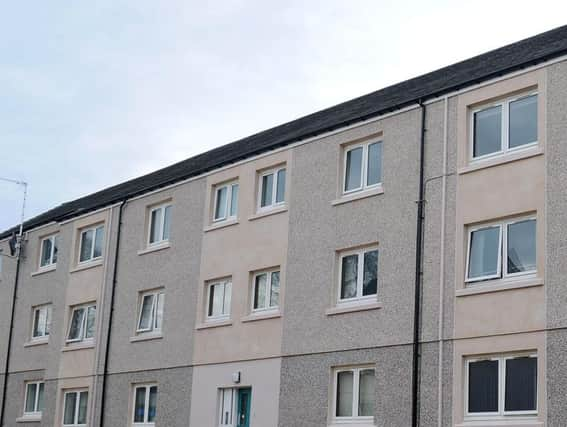Council house ‘cash machines’ – morally wrong or just good business? David Alexander comment


A recent TV documentary featured landlords who have made “loadsamoney” by buying up and renting out former local authority homes plus a London-based agent who specialises in this particular sector of the lettings market.
That fortunes can be made was exemplified by Niven, who operates in Greater Manchester. He bought his first former council house as a letting investment aged just 20; now 32, he owns 25 similar properties whose joint value is estimated at £4.5 million and earning him more than £320,000 per annum – a tidy rental return.
Advertisement
Hide AdAdvertisement
Hide AdNo wonder he described his rentals as “cash machines”. He even seemed relatively untroubled by a recent incident with a rogue tenant, which he believes will cost him around £20,000. And it is a fortune Niven did not attempt to hide.
He owns a Ferrari he says “cost more than one of his properties” and his vast collection of designer trainers includes one £400 pair.
Another of the featured landlords was more circumspect, having himself been brought up in a council house. Yet he was prepared to point out that in his large, detached family home – bought from the proceeds of his property investments – the square footage of the private space allocated to his teenage son was larger than the entire house he was raised in.
The documentary focused on the situation south of the Border where council house sales are continuing apace, unlike Scotland, where they were banned by the SNP Government.
Nevertheless, until the ban, a substantial number of former council houses in Scotland had been sold on to private landlords so the programme still had resonance north of the Border.
Entrepreneurship?
Many will call the actions of the above landlords no more than entrepreneurship. After all, these people have simply seized on a legitimate business opportunity. They are not doing anything that is unlawful and, no doubt, are paying a substantial amount of tax on both income and any capital gains. They also insisted that they provided a good service to tenants.
However, is it right, especially when there are so many families on waiting lists for a local authority home? I have always been a supporter of “right-to-buy”; who can deny that Scotland’s former council estates (or “schemes” as we prefer to call them) have benefited aesthetically from the individualism that the legislation permitted – instead of gray uniformity there are extensions, garages, variations in style and colour of front doors, wall coverings and window frames.
More crucially, it meant tenants in or approaching middle age, were given the chance to become home-owners, which otherwise, due to demographics and income levels, would have been denied to them.
Advertisement
Hide AdAdvertisement
Hide AdHowever, it has led to a glaring anomaly in which a family privately renting a former council house can find itself paying around double the rent of the local authority tenant next door – for what is essentially the same property. With hindsight, it might have been better had the original legislation contained a caveat that put restrictions on former council houses being sold on to private landlords, perhaps for as long as ten years after the first sale.
But the only real solution is more new council or other “affordable homes”. The situation is very acute in Edinburgh, where only 15 per cent of total stock is social housing, compared to a national average of 25 per cent. Edinburgh Council has said it is committed to redressing the balance and is on target to deliver a commitment to 20,000 new-build properties.
Let us hope this is the case. Waiting lists are a social issue and therefore the solution is social housing, not by placing restrictions on private landlords – even those who have an annoying love of bling.
David Alexander is MD of DJ Alexander